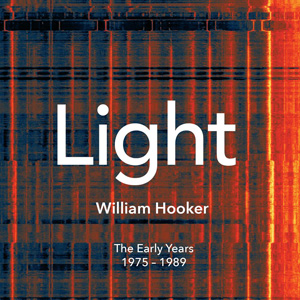William Hooker
NoBusiness Records (Limited Edition Box Set, 4 CDs)
Drummer William Hooker (b. June 18, 1946) is a player who gives absolutely everything in performance. Not only does he put his entire being into the music, but in each setting, whether in concert or on recordings, he gives listeners a complete picture of his world at that moment. To accept such an honest outpouring of complete emotion and integrity is a challenge and not everybody is necessarily prepared for this kind of generosity. The stakes are high, but the information is there — at Brooklyn’s Roulette in April, he presented a trans-media environment in homage to writer James Baldwin, conducting from the drum chair (and as a standing reciter) an ensemble featuring poetry, rapping, dance, electronics and acoustic improvisation. In looking at the breadth of Baldwin’s art, one might see parallels with Hooker’s work — every sentence and every volume a complete, multi-sided view of both the artist-as-creator and the keyed-in self.
Since emerging on the creative music scene in New York in the mid-1970s (via Connecticut), Hooker’s raw, fiery ensemble and solo music has defied easy categorization, threading a committed and winding path through free improvisation, art rock and new music. The evolution and steadfast singularity of his music have been in some ways tough to track — the only readily available documentation of his early work was a pair of dates recorded for Silkheart at the close of the ‘80s. Released on Lithuanian stalwart NoBusiness Records, Light: The Early Years 1975-1989 is a means to correct that dearth, presenting four discs of rare and previously unheard music. Two of the discs comprise the material released on Hooker’s first two albums as a leader, 1977’s …is eternal life and 1980’s Brighter Lights, both of which were released on his Reality Unit Concepts imprint, and the rest features otherwise unissued solo and group recordings.
It was a gutsy move in the mid-70s to appear as a leader without coming up in the ranks of sidemen, even in the realm of free music, not to mention self-releasing your first album in a handsome, deluxe double-LP package – but that’s just what Hooker did. The …is eternal life sessions include solo drum music; a trio with tenorist David Murray and bassist Mark Miller; a duo with tenorist David S. Ware; and a trio with reedists Les Goodson and Hasaan Dawkins. While Hooker’s music appears concerned with shifting and shaping great masses of sound — whether in the recent electrified context of his work with guitarists and turntablists — or the coruscating burn of this disc’s 1976 trio with Dawkins and Goodson — there is an underlying fleetness to his percussive approach, skimming bebop inflections and brushy allover chatter mixed with pit-vibrating bombs and arcing metallic sizzle. “Drum Form,” which opens the set, begins with spare triangle, shakers and vocal lullaby, insistent tom patterns and cymbal grace directing tension into phased swirls and coasting shimmer embellished by wave-cresting cries. “Soy: material/seven” is one of David Murray’s earliest appearances on record and invites a curious parallelism between bluesy caresses, globular shimmy, and particulate jitter (with a “St. Thomas” quote thrown in for good measure) towards an eventual merger of three streams.
Brighter Lights came shortly after and featured two duets — one with alto saxophonist/flutist Alan Braufman (who would also record with Hooker on 1988’s Lifeline), the other with pianist Mark Hennen. A longtime personal favorite, “Pieces I, II & III” is a robust, brushy waltz, papery cross-rhythms and a stomping bottom buoying Braufman’s fife-like natter. Switching to alto, smeared and bitter volleys tangle with Hooker’s athletic net and vocal affirmations, while shakers and malleted rumble limn Hennen’s Monkish arches and florid, resonant push, the proceedings granted extra immediacy by their lo-fi ambience. While not completely beholden to format, trios in which drums and voice conduct horns are, at least in these early groups, a consistent framework.
Aside from one cut with multiple horns and drums (only Goodson and Jemeel Moondoc are credited), the remainder of the box features two working bands with either Roy Campbell Jr. or Lewis Barnes on trumpet and Booker T. Williams or Richard Keene on tenor. The former group waxed The Colour Circle for Cadence Jazz Records in 1988, while the latter is otherwise undocumented. Keene has a powerfully hoarse tenor sound, “up through the ground and out through the bell” as reedist Prince Lasha might say, while his soprano is spindly and delicate. Paired with the withering incisions of Barnes’ trumpet, the trio inhabits an economical weight driven by Hooker’s fleet, sometimes didactic exhortations. Recalling February hits at the Stone with a variety of ensembles, Hooker often goaded his fellow musicians with lines like “get at the ROOT!” and “c’mon, play! Walk it!” “that’s right!” and other positive statements of conducting, which have long been part of the drummer’s approach to guiding collective action — certainly a part of the proceedings on these four discs, even when unaccompanied. Sure, he pushes himself as much if not more than any collaborator. Rare indeed is the recording that makes one feel as though one were truly a witness to the music happening in real time, but the availability of sheer intent on these four discs, regardless of recording quality, gives this work unique presence.
–Clifford Allen, May 16, 2016

